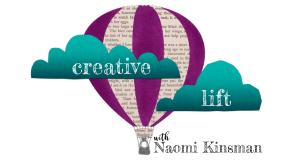“distringit librorum multitudo” (the abundance of books is distraction)
– Seneca
Even though he didn’t live in our age of information overload, Seneca had the foresight to see that too much is simply too much.
Recently, I realized I couldn’t remember the last five books I’d read, let alone any lessons I’d gleaned from them. With focused effort, I puzzled out which books I’d read. With further thought, I remembered the general plots or a couple key points. Not much to show for my investment of time.
Consumption without reflection is like peppering a steel wall with jelly beans.
Nothing sticks.
Everything clatters.
It’s a lot of noise and leaves behind a mess.
It’s worse than a zero-sum game.
Why? First, we spend our most valuable resource: time. We read books, listen to podcasts, and meet with advisors in order to learn and grow. In theory, spending time on learning and growth is completely worthwhile. But when we rush off to the next thing without capturing our thoughts or thinking about how to apply what we’ve learned, the growth opportunity slips away. Worse, by reading the book, listening to the podcast or meeting with the advisor, we create an internal tension between what we’re doing now and what we want to do or be in the future. Without definition or action steps, that tension builds up, making us more and more uncomfortable.
I’m not who I’m supposed to be.
I’m doing it all wrong.
Why should I even try when I’m so far behind?
Discouragement is a powerful foe.
The best way to push back against discouragement is to slow down. When you slow down, you allow yourself time to reflect. You diminish that inner tension because when you’ve decided how to apply your learning, you can take action. The action shrinks the distance between where you are and where you hope to be. When you slow down, you save time.
However, slowing down is counter-cultural.
Very. Just listen to the small-talk at any meet-and-greet, and you’ll hear fifty people explain how busy they are. Busyness, despite the fact that we all claim to resent it, is a badge of honor. We all appear to have an inner gremlin jumping up and down inside our brains shouting, “Go, go, go!” The gremlin is hard to ignore. And yet, if we want to push back against discouragement, if we want to feel more grounded, if we want to truly learn and grow, we need to build a habit of reflection.
Gretchen Rubin, of Happiness Project fame, suggests a variety of strategies to make good habits possible. One of those strategies is the strategy of convenience.
How can you make reflection convenient?
- Choose a starting place. Don’t try to become a reflection aficionado overnight.
- Designate a collection tool. Once you’ve chosen one kind of reflection to add to your routine, consider how and where you’d like to capture your thoughts. A notebook? A digital tool? Consider convenience both in the moment of reflection and later when you review your notes.
- Create a template. Pre-thinking about the questions you’d like to answer makes the reflection process much more efficient. Also, a standard format for responses makes reviewing the set as a whole more meaningful.
- A template may be a set of three questions you write in the front of your paper notebook, and that you answer each time you reflect.
- A template may be a PDF that you load as a custom page into a digital app such as Noteshelf.
- A template may be an outline that you draft, and then copy/paste in an app such as Evernote or Google Drive.
Once you get one reflection habit underway, you can turn to another area of your life where reflection may help you grow. If you build a system that is easily expandable, soon, you’ll find that reflection has become a way of life. You will feel a greater sense of ease as you take action on the goals that are important to you. The time you invest in learning will yield more significant results. By slowing down, you not only save time, but allow each experience to be more rich, valuable and meaningful.
I use a template for end-of-the day reflection. It includes a place to record ideas from the day, story moments, “gold stars” (moments I’m proud of) and “demerits” (moments I’d do over if I could.) I particularly like using the playful “gold stars” and “demerits” as a process of noting what’s going well and what I’m learning. Demerits, particularly, help me to let go of the “I wish I had …” thoughts that can get in my way.
If you’d like to download my template and try it out yourself, download it here.. I recommend loading this page into the Noteshelf app as a custom page, and dedicating a digital notebook to your reflection process. However, you can, of course, use or adapt the template however you like!


